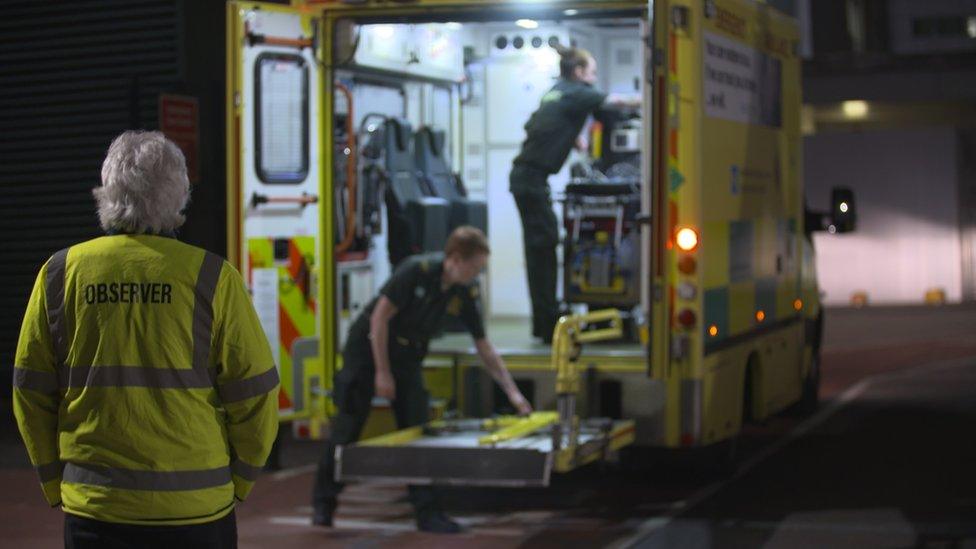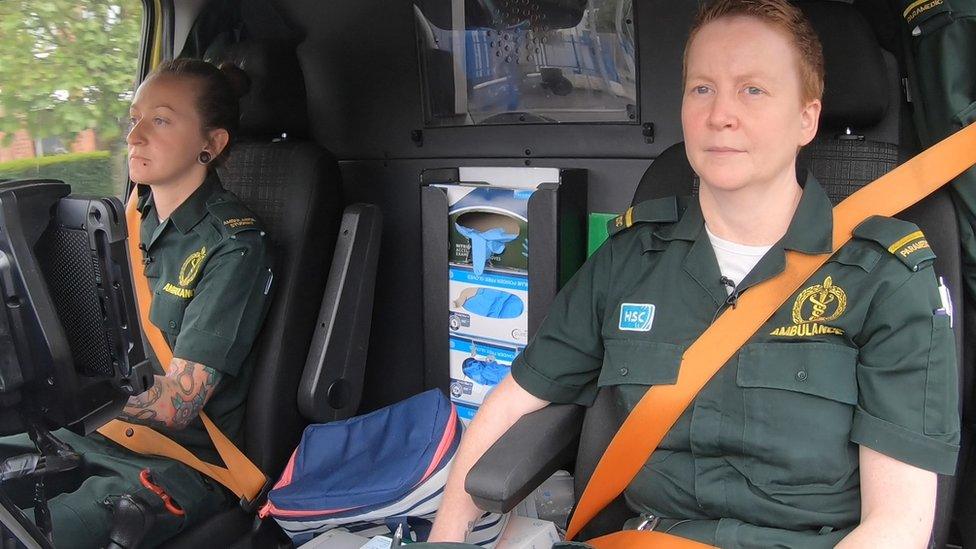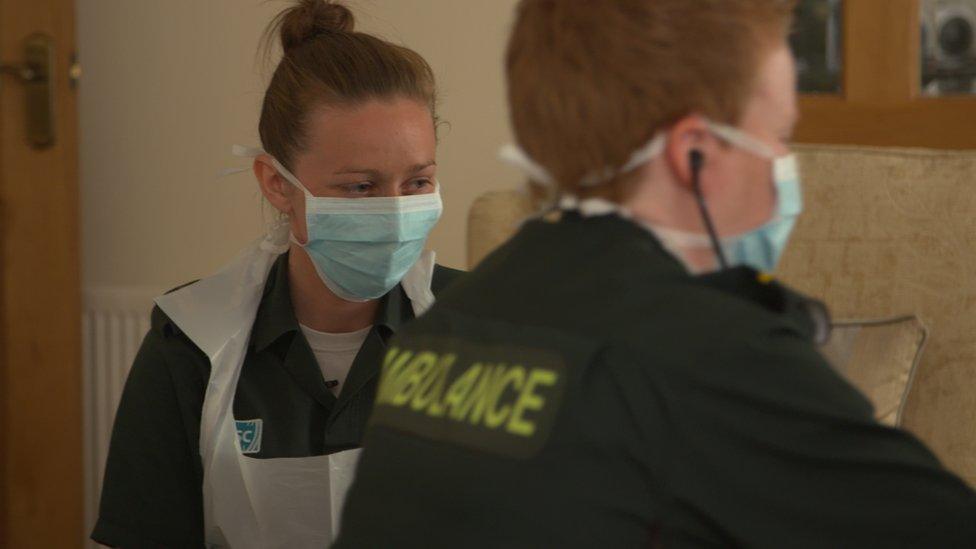Coronavirus: Ambulance service receives over 13,000 calls
- Published

It was an ambulance emergency call out that wasn't an emergency. It was the best call of the night.
A woman was scared she had the symptoms of Covid-19. It was close to midnight. Afraid and alone in her home in south Belfast, Betty called 999.
BBC Spotlight spent one day and one night on the road with paramedics Orla McCartney and Jessica Willis.
They have been a team since the start of the year working from their base in east Belfast.
And they're busy, taking their share of the more than 13,000 of Covid-19-related calls that have descended on the ambulance service since the pandemic hit.
Every other call seems to bring with it the shadow of the virus.

BBC Spotlight spent time on the road with paramedics Orla McCartney and Jessica Willis
As they hurry to each patient, their dispatcher feeds through information so they know what to expect.
But it's only when they see the patient that they can make a proper assessment.
Time and time again when we were with them, Covid-19 loomed.
A patient, who seemed to have a heart complaint, is showing symptoms of Covid-19. Another, whose doctor is concerned about her breathing pattern, is also exhibiting other indications of the virus.
At all times they are wearing the proscribed personal protection equipment (PPE) but the crew still seem terribly vulnerable to the virus.
Jessica had been ill with it. It didn't knock her off her stride.
Orla hasn't shown any signs of it but knows it could be around the corner.
More than 30 of their colleagues have had Covid - all have recovered but two were hospitalised for a time.
They go about their work with ferocious efficiency and professionalism but it's clear that their friendship matters in the storm that they are driving through.
You sense the gentle banter between them protects them from the trauma that could swamp their role.
They are taking a rare break on their night shift when they get a call to south Belfast. They head off, sirens blaring, lights sweeping along the shop fronts of the Lisburn Road.

Ambulance crews wear PPE on calls
By the time we reach them they are already inside Betty's home. For 10 minutes they examine her, comfort her and reassure her.
At one point Betty asks, in a voice and tone that would melt a stone: "Am I keeping you back?"
Orla says simply: "Don't be worrying about that. We're here for you."
I don't suppose ambulance crews are allowed to have favourite patients but Betty, safe and reassured, was able to stay at home.
Jessica says: "She's 87, although a very fit 87, but she knows herself - it's better to stay home."
This outcome is the best outcome as far as they are concerned.
Tougher calls lay ahead for them.
BBC Spotlight is on BBC One Northern Ireland at 22:45 BST.